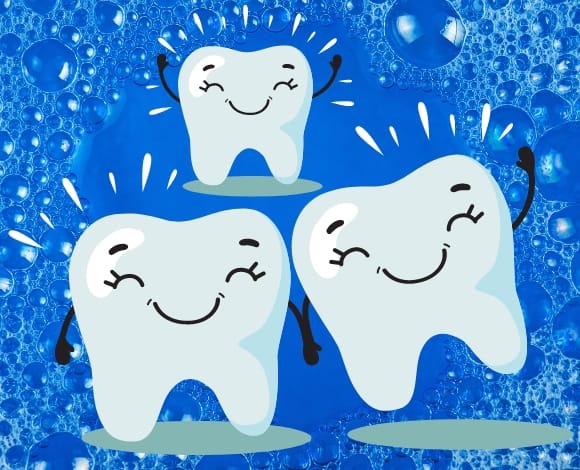Book Your Dental Cleaning at Locascio Family Dentistry in Elk Grove
Elk Grove, CA 95758 Directions (916) 683-4333
A Dental Cleaning, technically known as Dental Prophylaxis.
A dental hygiene appointment typically entails a checkup and cleaning for most patients. Overall, a dental cleaning is a quick and painless procedure that is an important part of maintaining good oral health.

Dental prophylaxis is a medical term used in dentistry to describe a preventative dental procedure (teeth cleaning) involving removing plaque, tartar, and stains from the teeth. The term "prophylaxis" means prevention; it refers to preventive measures taken to maintain good oral health and prevent dental problems such as cavities, gum disease, and bad breath.
Dental cleanings—the unsung hero of oral hygiene—may not be as exciting as a new toothbrush or as glamorous as a teeth-whitening treatment, but let's face it: a dental cleaning is the workhorse of your dental care routine. So, let's take a moment to give dental cleanings the love and appreciation they deserve.
During a regular dental cleaning, the hygienist will first look at the teeth and gums with a small mirror. They will then use a scaler tool to remove plaque and tartar from the surfaces of the teeth, paying particular attention to the areas around the gum line. Once all the plaque and tartar have been removed, the hygienist will use a polishing tool to smooth the surfaces of the teeth and make them feel clean. They may also apply fluoride to the teeth to help prevent cavities.
Who are dental cleanings for?
Dental cleaning is generally recommended for all ages, regardless of age or oral health.
How often should I get my teeth cleaned?
Generally, it is recommended that individuals receive a dental cleaning every six months. This recommendation is based on the average rate of plaque buildup and the time it takes for bacteria to cause significant damage to teeth and gums. However, some people may need dental cleanings more often, depending on their circumstances.
Why do some individuals require more frequent dental cleanings?
- Gum disease: People with gum disease require more frequent cleanings to control the infection and prevent further damage to the teeth and gums.
- Tartar buildup: If you have a lot of tartar buildup on your teeth, you may need to get cleanings more often to remove it and prevent further damage.
- Medical conditions: People with certain medical conditions, such as diabetes, may be more prone to gum disease and require frequent cleanings.
- Smoking: Smoking can cause a buildup of plaque and tartar on the teeth, so smokers may need to get cleanings more often to remove them.
- Genetics: Some people are genetically predisposed to developing gum disease and may require more frequent cleanings to prevent it.
Reasons include:
Will my dental cleaning be painful?
Dental cleanings are typically not painful. However, some people may experience discomfort or sensitivity during the cleaning, particularly if they have sensitive teeth or gum disease. This discomfort is usually temporary and should subside shortly after cleaning.
If you're uncomfortable, tell your dental hygienist immediately so they can adjust their technique or use more numbing agents.
If you're anxious about dental cleanings, ask
Dr. Locascio about sedation.
How long do dental cleanings take?
Most dental cleanings last about 45 minutes.
How can I preserve that freshly cleaned feeling?
- Brush your teeth twice a day using fluoride toothpaste.
- Floss at least once a day to remove plaque and food particles between your teeth.
- Don't skip regular dental checkups and cleanings every six months to maintain good oral health and catch any problems early.
Do electric toothbrushes outperform manual toothbrushes?
According to research, electric toothbrushes remove plaque and reduce gum inflammation better than manual ones.
According to a Journal of Clinical Periodontology study, electric toothbrushes removed plaque and reduced gum inflammation better than manual toothbrushes after three months. According to another American Journal of Dentistry study, electric toothbrush users had less plaque and gingivitis than manual toothbrushes after one year.
Many electric toothbrushes have timers and pressure sensors to help users brush for two minutes and avoid overbrushing, which can cause gum recession.
However, adequately used electric and manual toothbrushes can be effective. The most important thing is to brush twice daily for two minutes and use proper techniques to remove plaque and bacteria from all teeth and gums.
The effects of oscillating-rotating electric toothbrushes on plaque and gingival health.Request a Dental Cleaning
Book An Appointment
New patients receive a comprehensive examination which includes a screening for oral cancer, gum and bone disease, blood pressure, and systemic disorders. A routine oral exam is performed on established patients to determine any changes in dental and health status since the previous visit.
Does dental insurance cover the cost of dental cleaning?
Most dental insurance plans cover the cost of dental cleanings as part of their routine preventive care benefits. Dental cleanings are usually covered at 100% under these plans, meaning the insurance company will pay for the entire procedure cost
Check with your insurance provider to confirm the details of your coverage, as some plans may have different rules or exclusions.
How much does dental cleaning cost?
For new patients without dental insurance, a thorough exam, x-ray and teeth cleaning is only $200. For those with dental insurance, your insurance usually covers two exams and teeth cleanings per year as well as one set of x-rays as part of your benefits.
Keeping your smile clean and fresh is an excellent investment in yourself
A dental cleaning can improve your oral health, which can, in turn, improve your overall health and quality of life. Having a clean and healthy mouth can boost your confidence and self-esteem. Overall, a dental cleaning can definitely improve your life by helping you maintain good oral health.